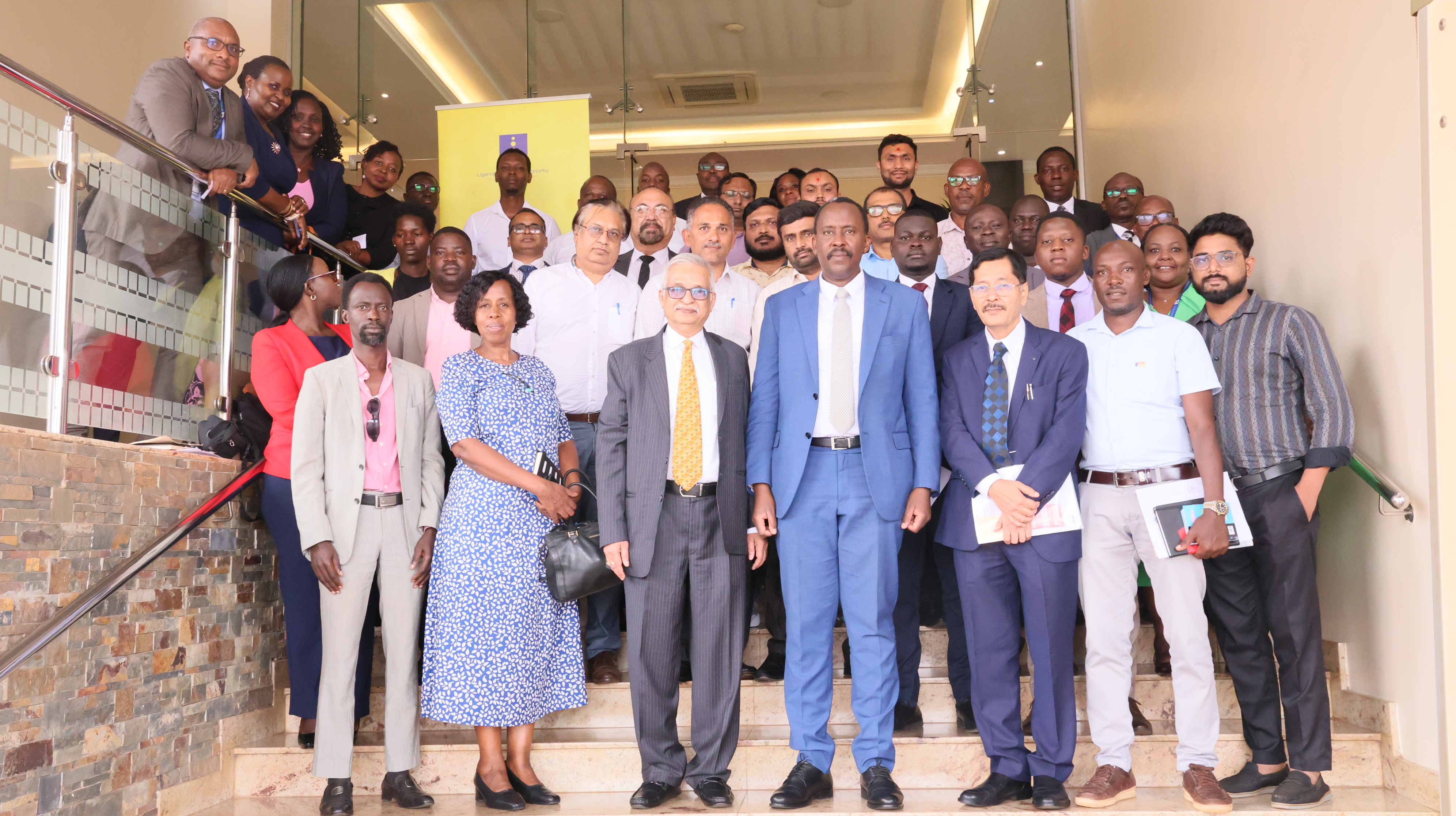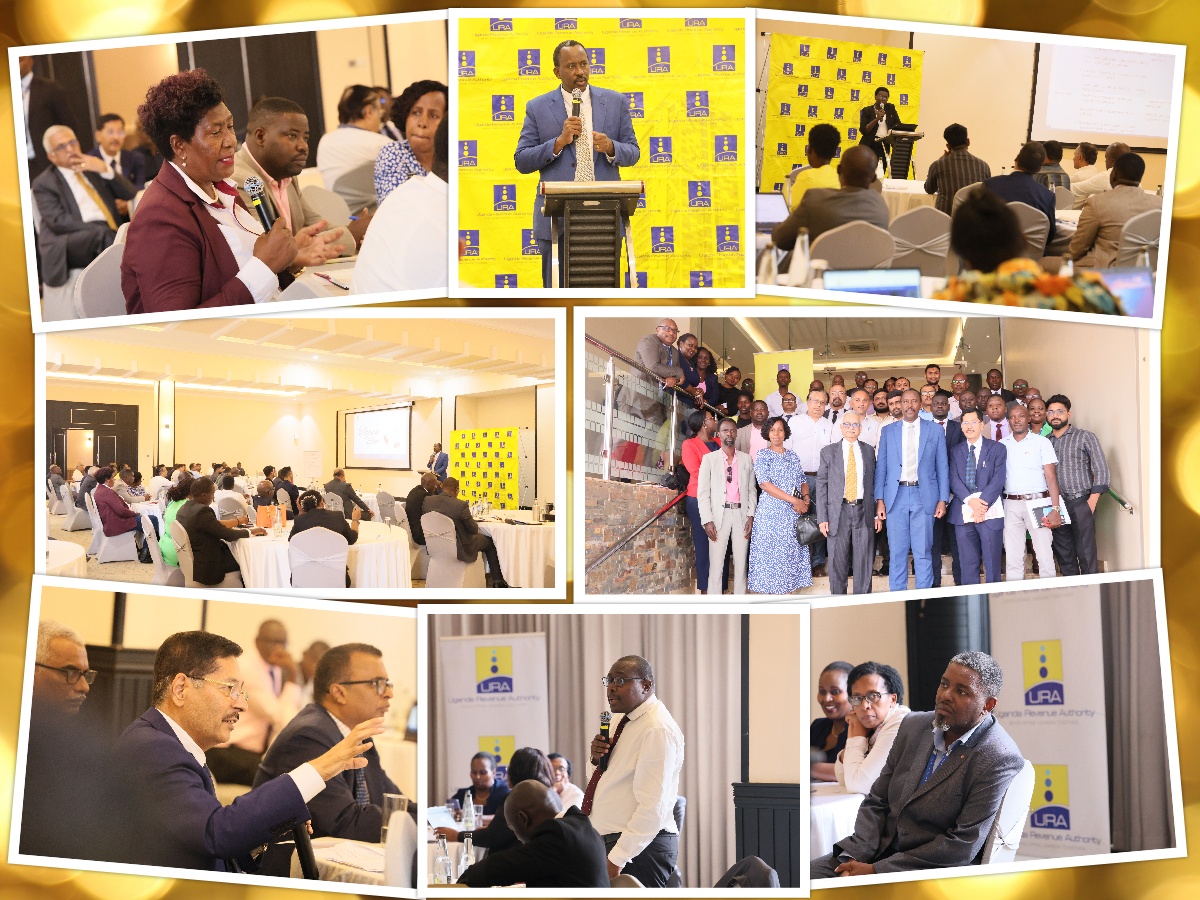
Uganda Revenue Authority (URA) has announced plans to leverage weighbridges to improve compliance among sugar manufacturers with the aim of reducing tax evasion and enhancing growth within the sector.
This development came after a key meeting between Commissioner General John Musinguzi and sugar manufacturers and distillers at Mestil Hotel in Kampala.
The meeting sought to address emerging compliance challenges to improve the sector. It also focused on fostering a collaborative relationship between URA, sugar manufacturers and distillers.
Musinguzi highlighted the critical role the sugar sector plays in the Ugandan economy, emphasizing its contribution to national growth, employment, and revenue generation. He stressed that compliance from manufacturers would not only ensure fair play within the industry but also positively impact the broader production chain.
“We truly appreciate the vital role you play in our economy. Your compliance drives the success of the sectors that you supply. When you operate transparently, it allows us to achieve our revenue targets while ensuring fairness in tax collection,” Musinguzi said.
He also pointed out the detrimental effects of non-compliance, citing how unfair practices can harm the entire industry, leading to challenges such as the overstocking of product tanks due to irregularities in the playing field.
Musinguzi asked the manufacturers to limit sales to strictly registered buyers and use the Electronic Fiscal Receipting and Invoicing System (EFRIS) to trace transactions effectively.
Additionally, the use of weighbridges was emphasized as a significant tool to monitor the procurement of sugarcane and ensure accurate reporting of materials.
URA intends to connect its systems to factory weighbridges, allowing for real-time monitoring of the quantities being procured, while also pushing for a reduction in cash transactions.
Musinguzi questioned the need for cash payments in significant purchases, urging the use of mobile money or bank transfers to ensure transparency.
Another key point of discussion was the need for 100% compliance with the Digital Tax Stamps (DTS) system, with Musinguzi vowing that URA would take steps to improve efficiency, including negotiations on reduction on the cost of stamps.
He also announced that enforcement would be ramped up to combat the illicit trade of unregistered products.
Sarah Chelangat, Commissioner for Domestic Taxes, addressed the risks of non-compliance across various taxes, including VAT and PAYE. She stressed the importance of collaboration, information sharing, and the adoption of new technologies to ensure smoother revenue compliance.
Manufacturers speak out
Satish Sawhney, the CFO of Kakira Sugar, welcomed URA’s innovations such as the EFRIS and DTS, which have streamlined the compliance process, but called for improvements in the DTS system to better integrate with operational systems.
Sheila Sabune, Corporate Relations Director at UBL, suggested that URA consider allowing companies to utilize their stamps in full and account for them later, to bridge the gap between stamp supply and actual usage.
Meanwhile, Prudence Kasibante Ukkonika of Bella Wine advocated for more government incentives for manufacturers using local raw materials to foster job creation and business growth.
In response, Dennis Kugonza the Commissioner of Tax Investigations warned that URA would not tolerate any misdeclarations or manipulations of data, particularly involving weighbridge discrepancies.
The meeting concluded with a commitment to continue strengthening the relationship between URA and sugar manufacturers to protect and grow the sector, ensuring long-term sustainability and contributing to national development.
About the Sugar Industry
The Ag. Assistant Commissioner of the Large Taxpayers Office, Innocent Ngaruye, shared insights into the growing sugar consumption in Uganda, projecting an increase from 10kg to 15kg per person in the coming years. He affirmed URA’s dedication to supporting the sugar industry’s growth.
Musinguzi also reflected on the growth of Uganda’s sugar industry referencing how, the country faced a sugar crisis in the past years, but is now a net exporter of sugar. He commended the industry’s growth and the role played by manufacturers in reaching this milestone.
“Thanks to your efforts, we have not only met domestic demand but are now supplying neighbouring countries,” Musinguzi added.
By Joshua Niyonshima and Laura Nagaba






No Comments yet!